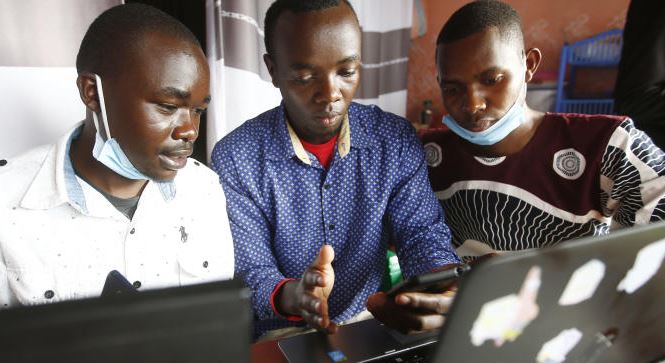×
The Standard e-Paper
Fearless, Trusted News

Three Laikipia University students have developed an application that could help in tracing people who come in contact with Covid-19 patients.
John Mumo, Brian Mutiso and Francis Kinyuru, fourth year students pursuing Computer Science, developed an application known as Tsconnet Covid-19 Tracker, which is applicable on Android devices.